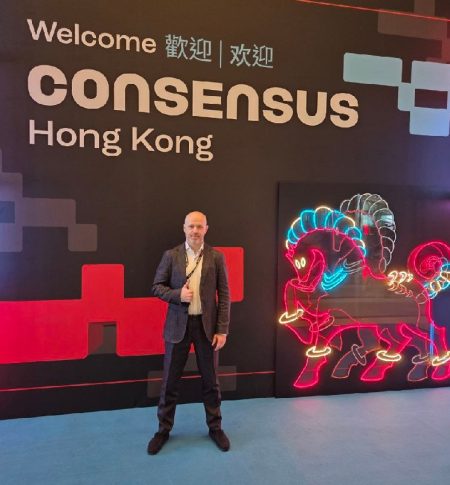South Korean Crypto Exchanges See Surge in XRP and Ethereum Trading as Market Sentiment Shifts
In a significant market development that signals renewed investor confidence, South Korea’s premier cryptocurrency exchanges Upbit and Bithumb have recorded substantial increases in trading volume over the past 24 hours. XRP and Ethereum (ETH) have emerged as the standout performers, with trading volumes reaching into the billions of won. This surge comes amid a broader recovery in digital asset markets and highlights South Korea’s continued importance as a global cryptocurrency hub.
Trading Volumes Soar as South Korean Investors Return to the Market
The cryptocurrency landscape in South Korea has experienced a remarkable transformation in recent days, with flagship exchanges Upbit and Bithumb witnessing transaction volumes that haven’t been seen in months. According to market data, XRP led the charge on Upbit with approximately 325 billion won (roughly $240 million) in trading activity, while Ethereum followed closely with 289 billion won (approximately $214 million). This resurgence in trading activity represents a striking departure from the relatively subdued market conditions that characterized much of the previous quarter.
“What we’re seeing is a perfect storm of positive market catalysts combined with pent-up investor demand,” explains Park Min-ho, a Seoul-based cryptocurrency analyst. “The Korean market has always been particularly responsive to momentum shifts in digital assets, and this current upswing suggests institutional and retail investors alike are regaining confidence in the long-term prospects of cryptocurrencies like XRP and Ethereum.”
Bithumb, South Korea’s second-largest exchange by volume, reported similar trends, with XRP and ETH dominating its trading pairs. The exchange saw combined volumes exceeding 200 billion won across these two assets alone, representing nearly 40% of its total daily trading activity. Industry observers note that such concentrated trading in specific assets often precedes broader market movements, potentially signaling a more comprehensive recovery across the cryptocurrency ecosystem.
Regulatory Clarity Fuels Investor Confidence in South Korean Crypto Markets
The surge in trading volumes comes at a pivotal moment for South Korea’s cryptocurrency industry, which has navigated a complex regulatory environment in recent years. The country’s Financial Services Commission (FSC) has gradually established clearer guidelines for cryptocurrency operations, helping to legitimize the industry and providing greater certainty for investors. This evolving regulatory framework has been instrumental in fostering the current trading environment.
“The regulatory landscape has matured significantly since the early days of cryptocurrency in Korea,” notes Kim Ji-yeon, a financial regulatory expert at Seoul National University. “While compliance requirements remain stringent, there’s now much more clarity around what constitutes legitimate cryptocurrency business operations. This stability has encouraged both exchanges and investors to engage more confidently with digital assets.”
South Korea’s Virtual Asset Service Provider (VASP) registration system, implemented in 2021, has created a structured environment where exchanges like Upbit and Bithumb operate under clear regulatory oversight. This has translated into enhanced consumer protection measures and more sophisticated trading infrastructure, factors that industry participants cite as crucial for sustaining the current trading momentum.
The Korean Won has also maintained relative stability against major currencies in recent weeks, providing a solid foundation for cryptocurrency trading denominated in the national currency. This macroeconomic stability, combined with regulatory clarity, has created favorable conditions for increased trading activity.
XRP’s Remarkable Performance Reflects Changing Market Dynamics
XRP’s dominance in trading volumes across South Korean exchanges represents a noteworthy development in the asset’s global trading patterns. The cryptocurrency, which has weathered significant regulatory challenges internationally over the past few years, appears to be finding particular favor among South Korean investors. Market analysts suggest several factors behind this trend, including the resolution of certain legal uncertainties surrounding Ripple Labs in other jurisdictions and XRP’s relatively low entry price compared to other major cryptocurrencies.
“Korean investors have historically shown a preference for assets with lower unit prices and high liquidity,” explains Lee Sung-jin, cryptocurrency researcher at the Korea Blockchain Association. “XRP fits this profile perfectly, allowing smaller retail investors to participate meaningfully in the market without committing substantial capital. Additionally, the recent legal developments surrounding Ripple have removed some of the uncertainty that previously dampened enthusiasm for the asset.”
Data from on-chain analytics platforms indicates that South Korean addresses have been net accumulators of XRP over the past month, suggesting a longer-term positioning rather than mere speculative trading. This accumulation pattern aligns with broader trends seen in the Korean cryptocurrency market, where investors have increasingly adopted longer holding periods compared to the rapid trading cycles that characterized the 2017-2018 bull market.
The trading volume surge has coincided with modest but steady price appreciation for XRP in Korean won terms, reinforcing the notion that the increased activity represents genuine investor interest rather than algorithmic trading patterns. Exchange order books show substantial depth on both the buy and sell sides, indicating a healthy, balanced market with organic participation from various investor categories.
Ethereum Adoption Accelerates Amid Technological Advancements
Ethereum’s strong showing in South Korean trading volumes reflects the cryptocurrency’s growing institutional adoption and technological progress. Following its successful transition to a proof-of-stake consensus mechanism, Ethereum has seen increased interest from both retail and institutional investors in South Korea. The platform’s expanding ecosystem of decentralized applications (dApps) and financial instruments has particularly resonated with the technologically sophisticated Korean investor base.
“Ethereum represents much more than just a speculative asset to Korean investors,” observes Choi Min-soo, blockchain technology specialist at Korea University. “There’s genuine appreciation for the technological infrastructure it provides and its potential to transform various industries. The recent protocol upgrades have addressed many of the scaling and efficiency concerns that previously limited adoption, making it an increasingly attractive investment proposition.”
South Korean technology conglomerates have also shown increasing interest in Ethereum-based solutions, with several major corporations exploring private implementations of Ethereum-compatible blockchains. This corporate engagement has further legitimized Ethereum as an investment asset among retail traders, many of whom follow institutional trends when making allocation decisions.
The exchange data reveals particularly strong trading activity during Asian market hours, suggesting that local investors rather than international traders are driving the current volume surge. This localized demand indicates that domestic factors, including South Korea’s rapidly evolving digital economy landscape and strong appetite for technological innovation, are playing crucial roles in shaping cryptocurrency market dynamics.
Future Outlook: South Korea’s Evolving Role in Global Cryptocurrency Markets
The recent trading volume increases at Upbit and Bithumb potentially signal a broader shift in global cryptocurrency market dynamics, with South Korea reasserting its influence as a key trading hub. Industry experts suggest that the current trends could presage more sustained growth in cryptocurrency adoption across various segments of the Korean economy, from retail payment solutions to sophisticated financial instruments.
“What we’re witnessing may be the early stages of a more mature phase in South Korea’s cryptocurrency journey,” predicts Park Ji-hoon, director of the Digital Asset Research Institute in Seoul. “The combination of regulatory clarity, technological advancement, and renewed investor confidence creates favorable conditions for cryptocurrency to become more deeply integrated into mainstream financial activities.”
The South Korean government has recently indicated potential support for blockchain technology development through various initiatives, including a regulatory sandbox for fintech innovations. These policies could further accelerate cryptocurrency adoption by creating pathways for more traditional financial institutions to engage with digital assets.
Exchange officials remain cautiously optimistic about sustaining the current trading momentum. “We’ve implemented sophisticated market monitoring systems and enhanced security protocols to accommodate increased trading volumes while ensuring market integrity,” notes a spokesperson for Upbit. “Our focus remains on providing a stable, secure trading environment regardless of market conditions.”
As global cryptocurrency markets continue to evolve, South Korea’s role as a significant trading center appears increasingly secure. The current surge in XRP and Ethereum volumes may ultimately be remembered as a pivotal moment in the country’s cryptocurrency narrative – one where increased regulatory clarity, technological progress, and renewed investor confidence converged to create the foundations for a more mature and integrated digital asset ecosystem.















